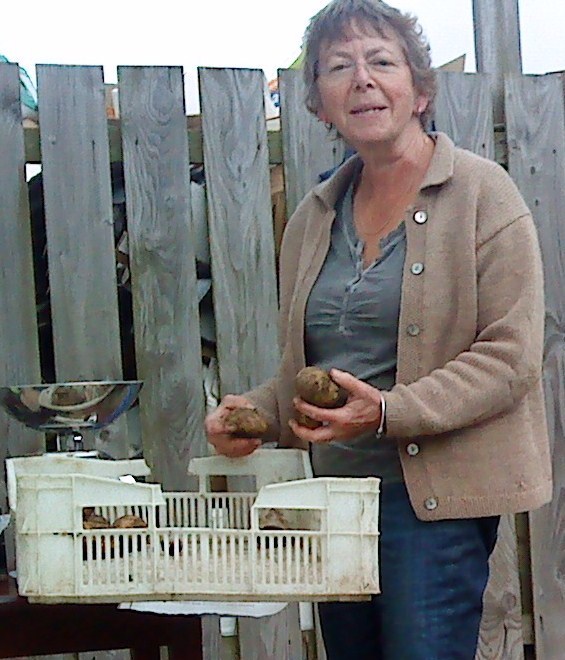
November 7, 2009
The extra potatoes in our shares are put there in direct response to a plea from Camel CSA members. Standard boxes contain 2.5 kg of Wilja spuds this week and there are 1.5 kg in the small boxes.
Our picking and packing volunteers had to dodge some sharp, heavy showers as they picked, dug, sorted and weighed the veg on Friday. The team’s now rigged up some rudimentary shelter to help them escape the worst of Cornwall’s wild autumn equinoxal weather.
Picking and packing supremo Trish explains:
“We’ve been loaned a gazebo which we put up over the sorting area. We’re hoping it’ll stay put and not take off once we put a couple of ties into the wall.
“It was good to stay reasonably dry while doing the packing and it meant we could leave the boxes under cover at the end.”
Friday’s band of helpers alongside Trish were Penny and Robert, Mike H, Henrietta and Jennie M.
The growing team still have broad beans to sow and garlic sets to plant which we hope (weather permitting!) to get finished this Sunday. See you then.
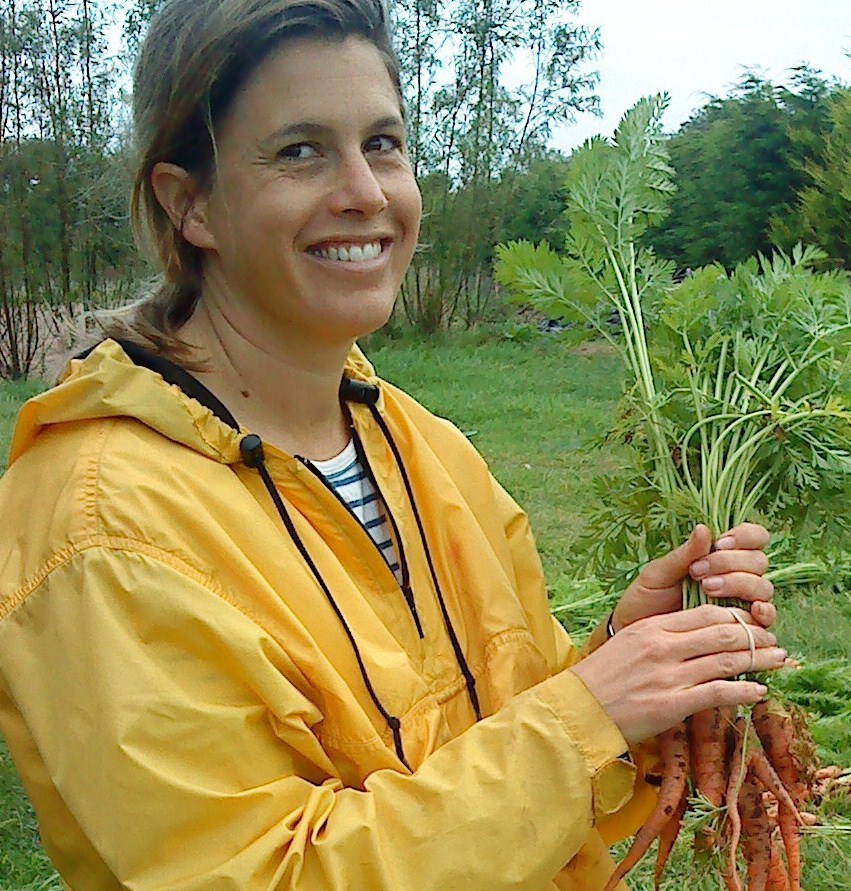
November 4, 2009
We’ve had another mention in the Western Morning News – this time in its Woman section.
WMN Woman’s editor Gillian Molesworth, herself an active Camel CSA member, reveals how she tried to grow vegetables on her own and lost heart. So she fully appreciates what we do:
“I highly recommend it. You get the gardener’s satisfaction of digging and weeding and picking … and you get to take home a weekly vegetable box that you didn’t have to grow all yourself.
You get to eat seasonally and locally, and even if there’s a permanent cloud sitting overhead waiting to rain on you when you start digging up carrots, at least you can complain about it to some fellow volunteers, instead of suffering in lonesome silence.
Finding the fun in vegetables – Western Morning News – WMN2 – Woman 30-10-09
November 2, 2009
The temperatures may be falling and the nights drawing in, but Camel Community Supported Agriculture is already looking forward to next year’s seasonal vegetable boxes.
Expert grower Jane Mellowship says:
“On Sunday we were very happy to get our spring greens finally in the ground and covered with a special new protective mesh, safe from any would-be nibblers!
“Conditions were far from perfect, very muddy and windy, so we were content to weed creeping thistle from the onion bed and leave it at that.”
Thanks to expert growers Jeremy Brown and Jane Mellowship. aided by Kitty, Mike H and Mike S.
The heavy overnight rain and galeforce winds made the ground too wet to plant the garlic sets and broad bean seeds that we intend to overwinter for an early crop next year. That’ll be done this coming Sunday, weather permitting.
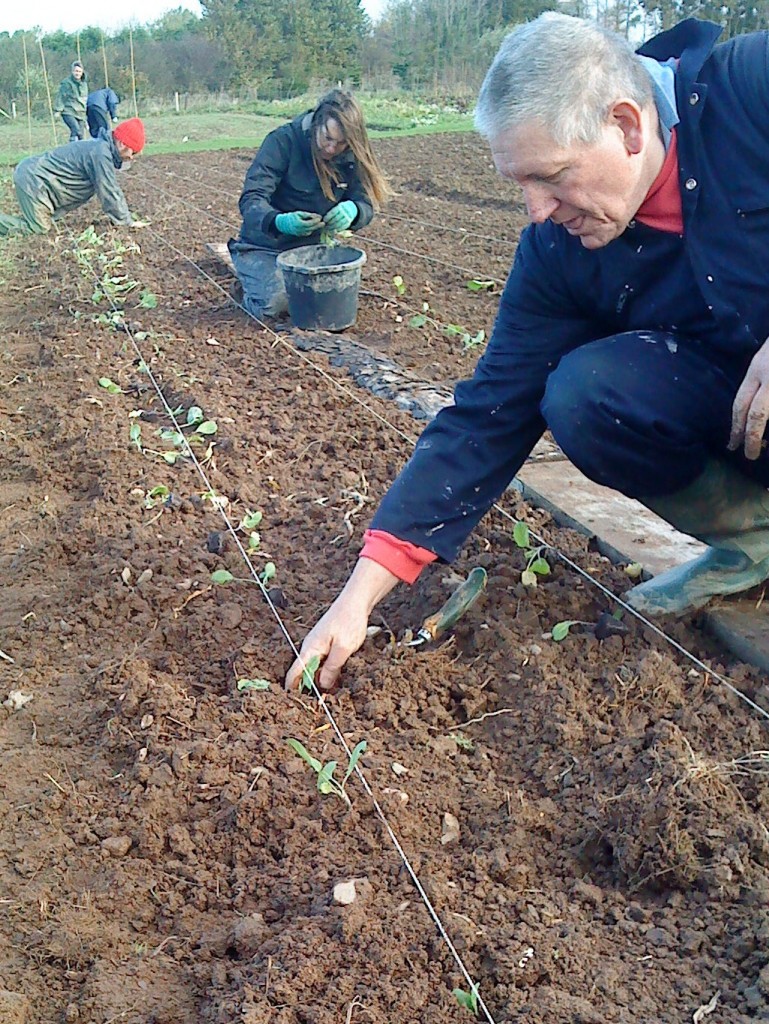
Supplies
Our packing team continue to do wonders on Friday mornings digging and picking and weighing produce. They fill more than 20 veg boxes each week in the short space of two hours.
Grateful thanks to stalwarts Trish, Caroline, Penny, Robert, and Gillian and her two children Sophie and Freddie.
Camel CSA’s own supplies continue to be supplemented by a wide variety of organic veg from our expert growers Jeremy Brown, Jane Mellowship and Mark Norman.
Some high-quality, non-organically grown vegetables are coming from local suppliers. James Mutton at Burlerrow Farm, St Mabyn is providing potatoes. We’re also buying in regular supplies of freshly-harvested brassicas and leeks from Richard Hore at Rest Harrow Farm, Trebetherick.
.
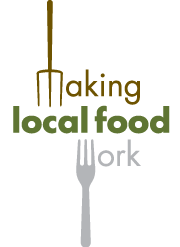
October 27, 2009
Hope you’re going to the Lovewadebridge public meeting this Friday 30 October. Wadebridge: Options for the Future, chaired by Dan Rogerson MP for North Cornwall, is at 7pm in Wadebridge Town Hall.
The initiative arises out of concerns about the impact of another supermarket on the town. Sainsbury’s wants to develop the former North Cornwall District Council offices at the eastern edge of Wadebridge into a superstore.
From our perspective as a community vegetable growing enterprise, Camel Community Supported Agriculture wants to make local food work.
We support the retention of a range of independent retail outlets that sell seasonal, locally-produced food.
Supermarkets have a stranglehold on food supply chains in this country. They also rely on international markets to import out-of-season produce. (Like rhubarb from New Zealand!)
This is detrimental to local food producers and the environment and is definitely not sustainable.

Needs
The timely Lovewadebridge campaign is encouraging people to really think about what our town needs, rather than what corporate business and big supermarkets want.
As Jeremy Rowe, Cornwall councillor for Egloshayle, St Breock, St Ervan, St Eval, St Issey, St Mabyn & St Tudy, points out on his blog (and on Twitter):
“If a new supermarket was to be built…Would Wadebridge still be able to support two butchers, a greengrocers, two bakeries, two newsagents and all the other ‘niche’ businesses in town?”
October 26, 2009
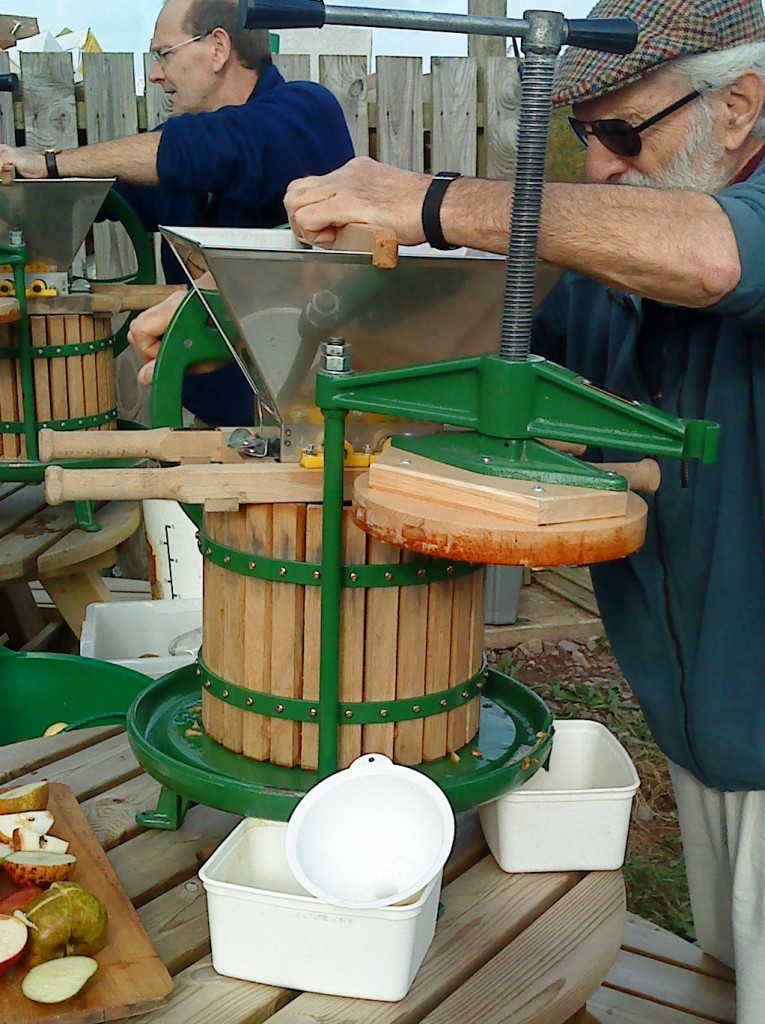
Young and old alike – great fun was had by all at Camel Community Supported Agriculture’s first apple juicing fest on Sunday.
We managed to produce more than 20 litres of delicious juice. It was shared out among our volunteer team, who diligently washed, cut up, crushed and pressed a harvest of local apples.
Grateful thanks to Camel CSA members Peter and Jane, and to the National Trust, for loaning their traditional wooden Vigo apple crushers and presses. CSA core (!) group member Ian remarked later:
“It was a great morning and the fruits (or should that be juices?) of our labour have certainly gone down well with my family – so much so that our bottles are already nearly empty!”
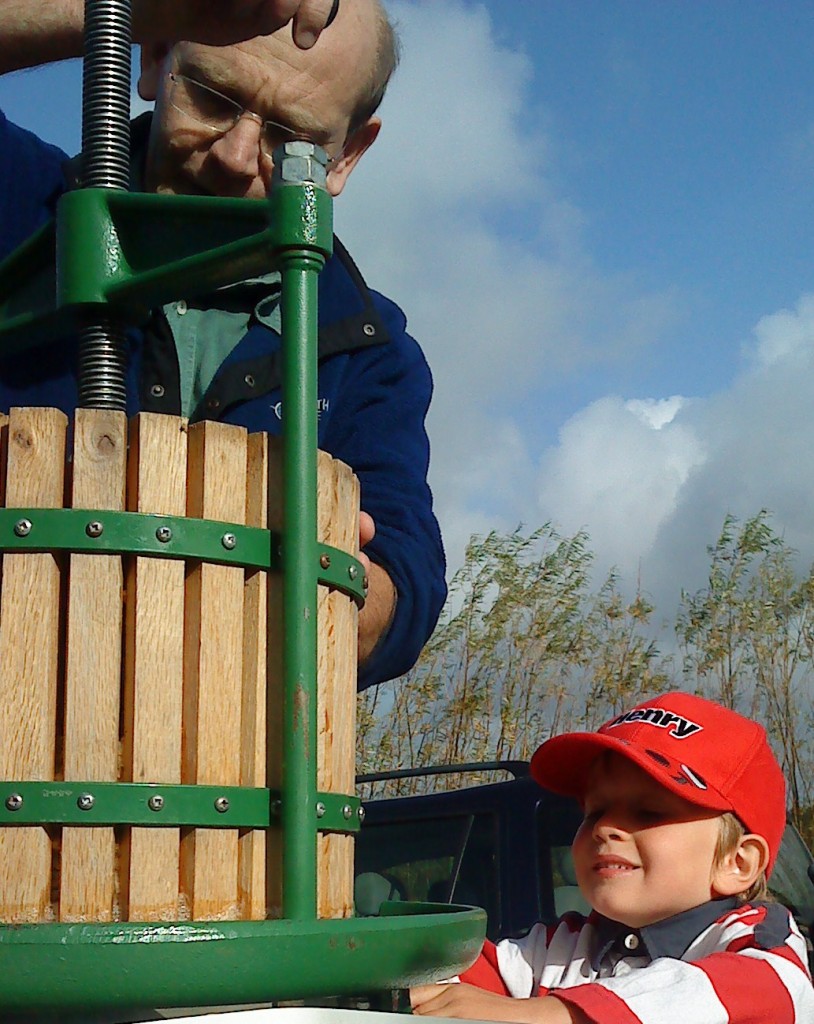
Antonina, Claire, Charlotte, Danny, Ian, Jane I, Jane M, Jeremy B, Mark N, Mike H, Mike S, Paul
& Peter
were the volunteers. We were aided and abetted by our young press gang – Carla, Charlie, Clementine, Finn, Keira and Seth.

October 25, 2009
Some CSAs in the US grow their own pomegranates. Even with global warming, I don’t think it’ll ever come to that here in Cornwall.
Compare Camel CSA’s share this week with the harvest from Beneficial Farms CSA in New Mexico: – Salad Mix, Radishes, Scallions, Turnips, Onions, Acorn Squash, Tomatoes, Red Delicious Apples, Sweet Pomegranates.
Pomegranate recipes from Beneficial Farms CSA include ginger and pomegranate muffins as well as pomegranate guacamole. (What next, you ask.)
See Poms for more intriguing recipes and pomegranate health tips.
October 23, 2009
Sweden turning stray rabbits into biofuel Could this be the solution to Camel CSA’s rabbit problem?
(Thanks to Mike H for sharing this with us)
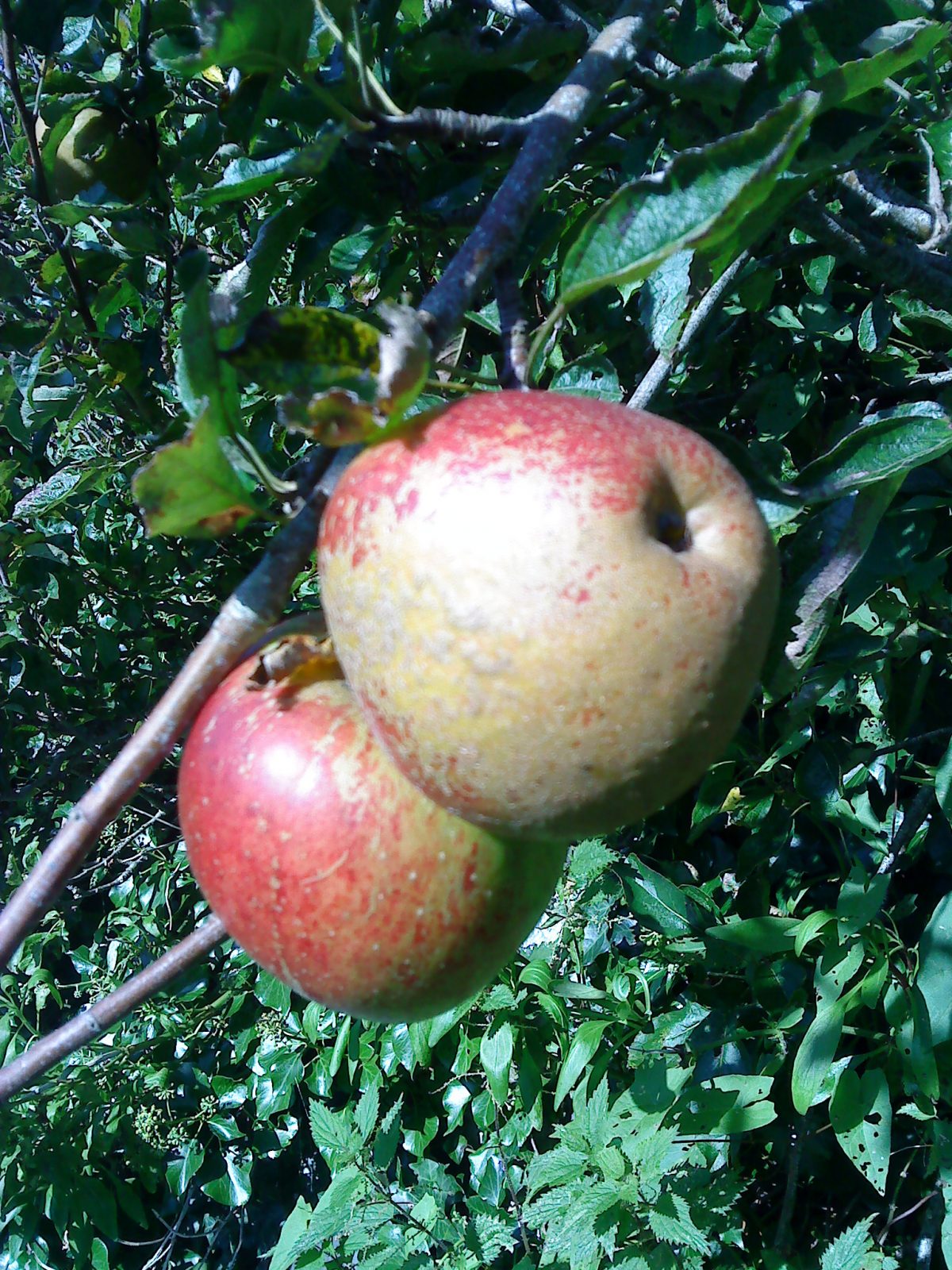
The dessert apples in Camel CSA’s vegetable boxes this week are a delicious old English variety called Lord Hindlip. They were planted in our garden at St Mabyn some 40 or more years ago by Percy Dunstan, a smallholder. His daughter, who still lives in the village, says they were his favourite.
Pomona Publications, which specialises in fine botanical art prints, describes this attractive-looking apple:
“A seedling from the Worcester estate of Lord Hindlip, introduced by the Watkins nurseries of Hereford in 1896. Lord Hindlip has beautifully coloured skin and a fine physique, broad shoulders tapering to a narrow base, with juicy flesh and a refreshing, tangy aromatic flavour.”
Rosanne Sanders, in her classic book The English Apple, admires its particular taste:
“The fruit is a very late dessert type, with rich and distinctive vinous flavour. Picking time is early to mid October and its season is December to March.”
Storage
Lord Hindlip is a late variety that benefits from being kept for a couple of weeks before eating. (But I suggest you try one and decide for yourself.)
From my own experience, I recommend Rosanne Sanders’ method of storing apples in a clear plastic bag:
“The material maintains high humidity and so prevents the fruits from shrivelling too quickly. However, the apple must be allowed to breathe.
The skin of the bag should be perforated with a hole the diameter of a pencil for every pound of fruit, and the top of the bag folded over rather than sealed. Use clear polythene so that the apples can be seen and any rots removed if necessary.
The required conditions of coolness, darkness and ventilation still apply.”
We’ll be including the remainder of the Lord Hindlip harvest in the apple juice we’re going to produce on Camel CSA’s site at St Kew Highway on Sunday. But we could do with some more. So please – if you know about any surplus apples going begging, do let us know.
October 21, 2009
We’ve located not just one but two fruit crushers and presses so we’re looking forward to Camel CSA’s apple juicing event this Sunday.
All members and their families are very welcome – children particularly so. Just come to our site behind St Kew Harvest Farm Shop between 10 a.m and 1 p.m.
Everyone will be able to have a hand in washing, cutting up, crushing and pressing the apples.
Please bring a clean plastic container to put the juice in. You can either keep it in the fridge and drink it within 48 hours or freeze it in the container.
Wanted – more apples
We picked loads of apples last week in St Mabyn. Thanks to Anne, Callum, Caroline, Charlotte, Kitty, Mark M, Mark N, Mike H, Mike S, Robert and Tess.
The best of the fruit is going in this week’s share of the harvest. The remainder will be turned into juice.
However we could do with some more. The crushing and pressing process uses up a lot of fruit! Around 20 lbs (10kg) of apples are needed to produce a gallon (4.5 litres) of juice.
So if if you know of any surplus apples going spare, please get in touch. Even better, bring them along with you.
Click here to find out more about Vigo’s traditional fruit crushers and presses.
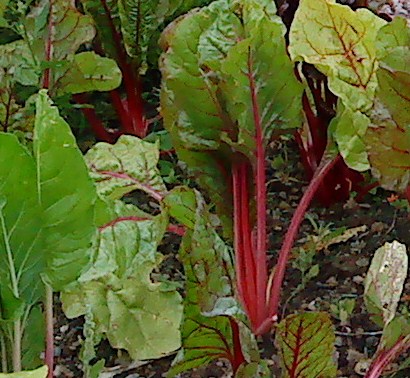
October 19, 2009
Compare this harvest of local food from Tucson Community Supported Agriculture in Arizona last Friday with the contents of the veg boxes from Camel CSA in Cornwall on the same day.
Tucson CSA’s planned harvest last week – Baby Swiss Chard, Bell Peppers or Cucumbers, Green Chiles (fresh), Green Tomatoes, Jack-O’-Lantern Pumpkin or Cushaw Squash, Radishes, Turnips (Hakurei or Purple Globe), Wheat Berries.
Camel CSA’s boxes last Friday – red onions, baby carrots, parsnips, Swiss chard, potatoes, leeks, cabbage, tenderstem broccoli, green peppers, cauliflower.


